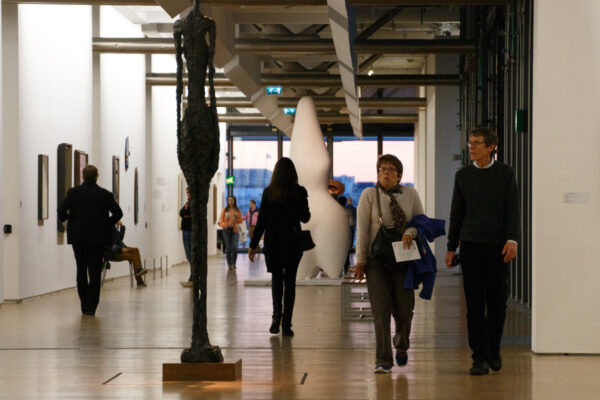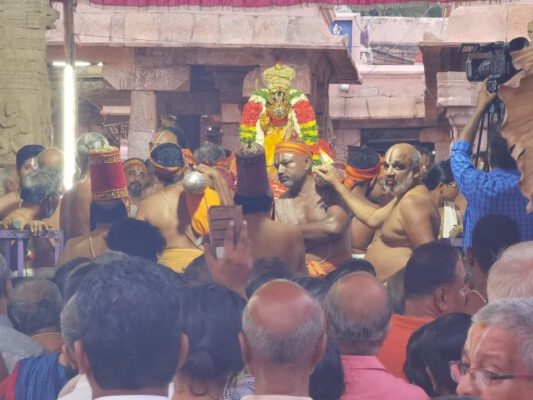NA friend recently asked me about the relationship between Eastern and Western culture. This is of course a huge question, which I also ask myself and which of course nobody can really answer. But I would like to formulate a few thoughts:
The distance from an imagined center
The 'Western' world, based on classical antiquity, Christianity, the Enlightenment and materialism, is contrasted with the Occidental world of the Assyrians and Persians, Islam and the idea of a community that is divinely controlled. This is a perspective based on a historical conflict that, from a Western perspective, is characterized by Alexander the Great, the Roman Empire and the Crusades. It is a Eurocentric, colonial perspective that avoids a dialog between the West and the 'other'. The Eastern world, the Orient, which today is characterized by Islam, also had a missionary agenda (jihad).
The whole thing is much more complex, of course, but my point here is to point out the area. This mostly confrontational relationship takes place geographically between the so-called Western hemisphere and the Middle East. North Africa is seen as collateral in this perspective. This entire description stems from 19th and 20th century thinking and does not do justice to the realities of the 21st century. What is not mentioned here are the cultural spheres of China and India. In the brutal colonial tradition of thought, this is merely the Far East. So we have a geographical distance line on which cultural hemispheres are ranked and for which the distance to the center (Rome, Constantinople, Greenwich meridian) is decisive. This is absurd, but nevertheless ideologically real. Actually, one should not think any further here. This is an old ideology that belongs in a museum at best.
Metaphysical systems
It is more productive to organize them into metaphysical, i.e. philosophical and spiritual systems:
- Monotheism (largely associated with a purely dualistic worldview originating in the Mediterranean region)
- a thinking of Immanence (which runs quietly through all epochs and cultures)
- the capitalist, scientific materialism of the 19th and 20th centuries (whose limitations and ignorance are currently threatening the planet)
- the wisdom of the Rishis in the Rigveda and the Upanishads in India
- what the communist cultural revolution left behind.
My wording very clearly shows a personal preference. This is about worldviews, world views, self-relationships to the world. They are highly subjective. As these only appear to be knowledge systems, and not religious systems or ideologies, but fundamental attitudes to life, the debates here are particularly exciting.
The future is often described as a battle over the distribution of resources such as water, climate impacts, fundamentalists, geopolitics, capital flows, scientific utopias and dystopias. In the 21st century, however, it is about the very essential: our relationship as human beings to the world, and ultimately whether we want to remain in it, and if so, how. I am very aware of the urgency of this question here in India; in the West, this question is still ridiculed. This seems to me to be the really exciting difference.
The origin of language
To put it another way: The universal language is not mathematics either. It really is amazing how effective mathematics and the natural sciences based on it are at explaining things. And the empirical sciences also have a certain explanatory power, as they formulate observations in theories. But they are an abstract level of description of the physical world.
The real mystery remains language itself. In the beginning was the word, says Genesis. In the Upanishads, sound plays a central role. The vibration that creates sound, which in turn captures an idea and creates a form, is a central link between our senses and our mind. The spiritual sound OM is a deep exhalation that ends with the closing of the lips and captures the core of our existence. Language, the creation of meaning through sounds, connects perception, expression, mental representation, imagination and communication. In the beginning was not the word, but the sound. From it comes the word, whose medium is the mind.
Who has an answer?
It can no longer be a question of preserving the status quo, and the idea of progress has finally become obsolete. What can answers look like?
- The dominant variant is to think about how we can improve the system of globalization.
- A more individual answer is to align one's own life with maxims.
- Another is the transformation of consciousness: individual, collective, universal.
Once again, it seems to me that the wisdom of the Upanishads already has an answer. For these three essential levels of a search for answers belong together. They are reconciled in the insight of the rishis. Only when we unite our material existence with our ideals of life and the insight that consciousness does not exist in isolation do we have a chance.
The mantras of the Rishi are the oldest spiritual texts that have been handed down. They bear witness to a beginning that was not a beginning. They bear witness to a universal consciousness that is not fed by personal motives, but by the human spirit, a meditative introspection. The solution lies within ourselves. As trivial as that sounds, it is also the highest wisdom.







